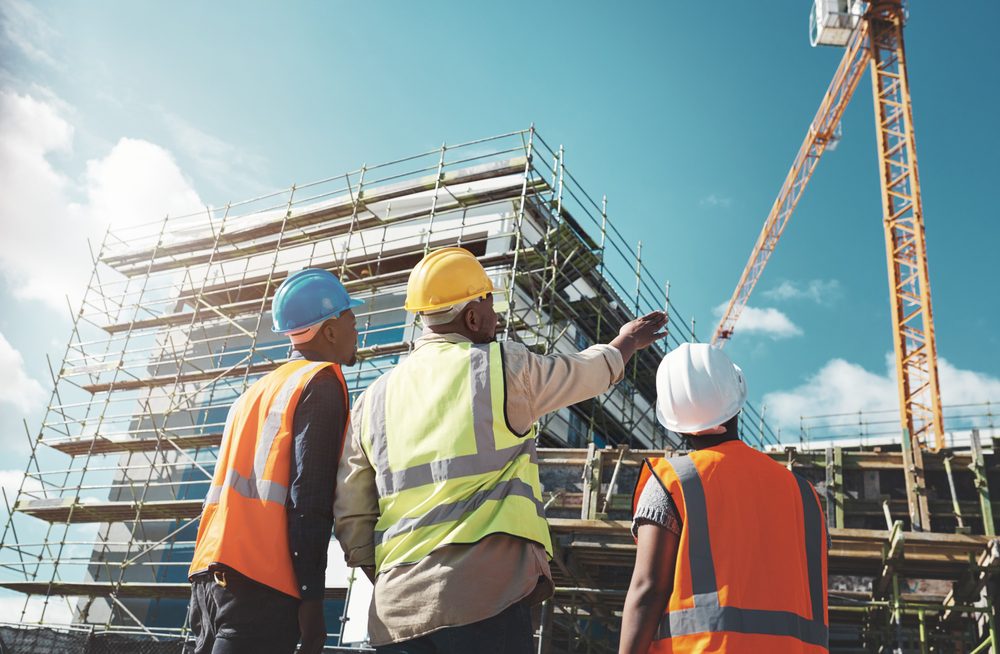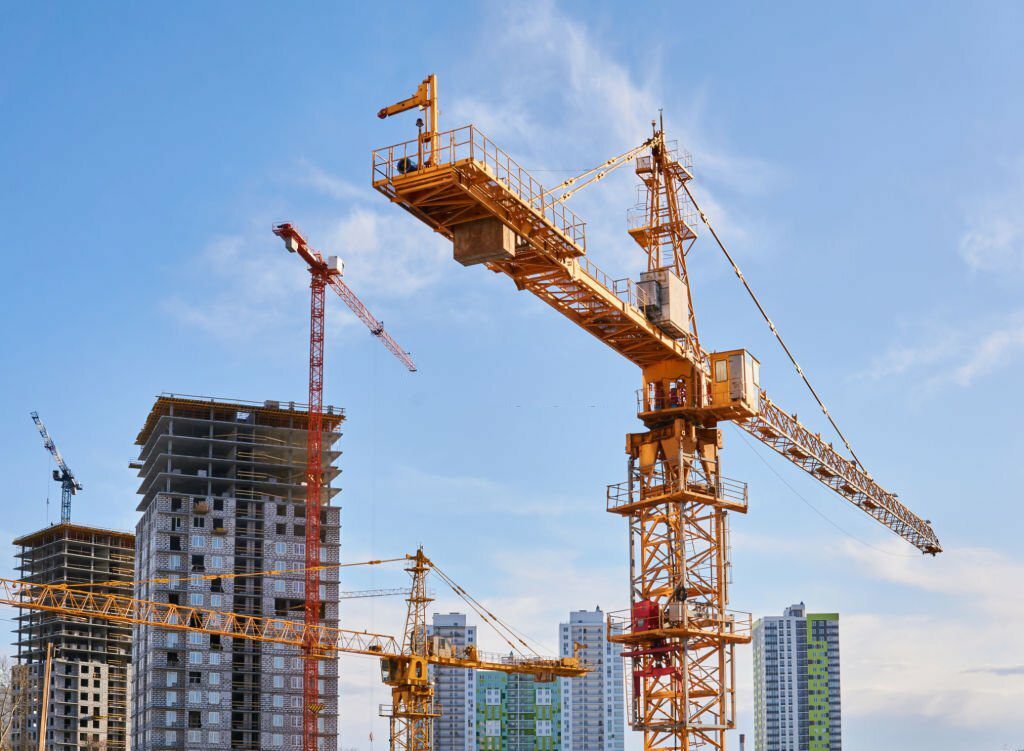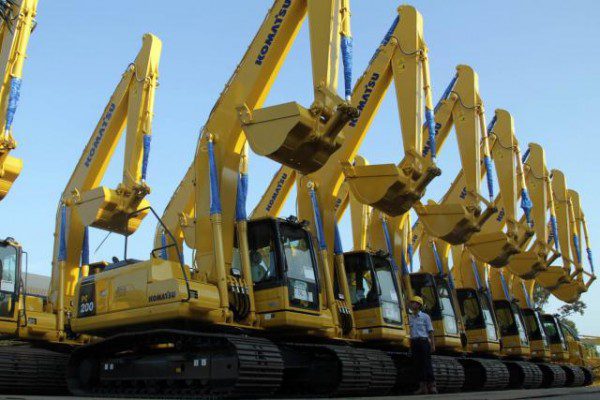In the world of development, The contractor is a figure who plays an important role in turning plans into real results in the field. They are responsible for carrying out all construction work according to the design, budget, and the time specified in the work contract. Without a reliable contractor, projects are at risk of delays, cost overruns, hingga hasil akhir yang tidak memenuhi standar teknis maupun estetika yang diharapkan.
Menurut Lembaga Pengembangan Jasa Konstruksi (LPJK), kontraktor adalah badan usaha atau perseorangan yang menjalankan kegiatan jasa pelaksanaan konstruksi. Kegiatannya meliputi pembangunan, maintenance, renovation, hingga pembongkaran suatu struktur atau infrastruktur. It means, seorang kontraktor wajib memiliki izin usaha, kompetensi teknis, dan sertifikasi resmi agar dapat melaksanakan pekerjaan konstruksi sesuai regulasi yang berlaku di Indonesia. Adapun tugas, type, dan perannya di lapangan yang akan kita bahas dalam artikel ini.
Perbedaan Kontraktor dengan Developer dan Konsultan
Banyak orang masih keliru membedakan antara kontraktor, developer, dan konsultan, padahal ketiganya memiliki peran yang sangat berbeda. Yuk, pahami perannya masing-masing di bawah ini :
- Developer (Pengembang): pihak yang merencanakan dan membiayai proyek, usually also the project owner.
- Consultant: in charge of the planning and technical supervision stages, ensure projects meet design and safety standards.
- Contractor: focus on the physical implementation of work according to the work contract and technical specifications prepared by the consultant.
In other words, developers are owners of ideas and funds, concept drafting consultant, while the contractor is the executor in the field.
Contractor's Main Duties and Responsibilities
In construction projects, The contractor's responsibility does not stop at just building. They also act as managers who organize resources, timetable, as well as ensuring the quality of work at every stage. The following are several important tasks that are the main responsibilities of a contractor.
1. Project Planning and Scheduling
Before a single stone is laid, The contractor must prepare a work plan and project implementation schedule (time schedule). This document covers the work flow, Estimated time, labor needs, and the use of heavy equipment in the field.
Careful scheduling helps ensure each activity runs sequentially and efficiently, so that potential delays can be minimized. Besides that, Good planning also helps all parties understand their respective roles and targets from the start of the project.
2. Procurement of Materials and Resources
The contractor is responsible for ensuring that all required materials are available on time and according to technical specifications. This process involves selecting a vendor, price negotiation, to monitoring the quality of building materials before use. Apart from materials, Contractors also manage labor and heavy equipment so that they are used efficiently. With good resource management, projects can run without logistical obstacles that can delay work.
3. Implementation of Construction Work
The implementation phase is the core of the entire construction process. This is where the contractor shows his ability to coordinate various aspects, starting from earthworks, structure, to finishing. Work is carried out based on working drawings, technical specifications, and strict safety standards.
A professional contractor will also carry out routine supervision in the field to ensure there are no deviations from the plan. Discipline in this stage determines the overall success of the project.
4. Quality Supervision and Work Safety
Maintaining the quality of work results is every contractor's top priority. Therefore, they implement a quality control system (quality control) at every stage of the project, starting from selecting materials, working method, until the final result. Besides that, implementation K3 (Occupational Health and Safety) It is a legal and moral obligation to prevent work accidents. A safe and orderly project environment does more than protect workers, but also maintain the contractor's reputation in the eyes of the client.
5. Project Completion and Handover
After the physical work is finished, the contractor carries out the final inspection process or final inspection to ensure all work is up to standard. This stage includes system testing, cleaning work area, to documentation of work results. After approval by the project owner, Official handover is carried out accompanied by a complete report and certificate of completion. This process is proof of professional responsibility that the project has been completed well.
Types of Contractors Based on Specialization
The world of construction is very wide, so each contractor usually has its own area of expertise. Following are several types of contractors based on their specialization.
1. General Contractor (General Contractor)
The general contractor has overall responsibility for project implementation from start to finish. They manage all aspects, starting from procuring materials, worker management, to quality control in the field. Generally, This type of contractor handles large projects such as the construction of commercial buildings, factory, or public infrastructure. Their role is very important because they are the coordination center between all parties involved in the project.
2. Specialist Contractor (Subcontractors)
Different from general contractors, subcontractors focus on certain areas of work that require special skills, such as an electrical system, plumbing, or painting. They usually work under a main contractor based on a written work agreement. Although the scope is narrower, The quality of the subcontractor's work determines the overall success of the project. Harmonious cooperation between the main contractor and subcontractors is the key so that work runs without overlap or conflict in the field.
3. Building Contractor
This type of contractor focuses on vertical construction such as residential homes, apartment, office building, or hotel. They don't just understand the structural aspects, but also the architectural and aesthetic elements of the building. Building contractors must be careful in arranging the sequence of work from foundation to finishing so that the final result is not only sturdy but also visually attractive.
4. Civil and Infrastructure Contractors
Civil contractors work on large projects related to the construction of public facilities, like a road, bridge, airport, or dam. Projects like this require high-capacity heavy equipment and careful site management. In infrastructure projects, Contractors also play a role in ensuring the safety of future users by prioritizing engineering precision and material quality.
5. Mechanical Contractors, Electrical, and Plumbing (MEP)
MEP contractors handle building support systems such as electrical installations, AC, lift, to clean water and sewer systems. They ensure buildings function efficiently and are comfortable for their users. Because his work is directly related to the safety of residents, MEP contractors are required to comply with national standards and use certified experts.
Contractor Classification Based on LPJK Qualifications
Lembaga Pengembangan Jasa Konstruksi (LPJK) dividing contractors based on financial capabilities, technical, and the scale of projects they can handle.
1. Small Contractor (Grade 1–2)
Small category contractors usually handle household scale projects or simple buildings with a project value of up to around IDR 500 million. Even though it is small scale, These contractors play an important role in meeting the development needs of local communities. Many large contractors start their careers at this level before moving up to larger projects.
2. Intermediate Contractor (Grade 3–5)
Medium contractors are capable of working on projects worth billions of rupiah, like school, small government building, or medium-scale public facilities. They have more complete resources and experienced experts. Usually, Medium contractors are starting to get involved in tender processes with government agencies or large private companies.
3. Big Contractor (Grade 6–7)
Large contractors operate at the national or even international level with project values reaching hundreds of billions of rupiah. They have their own fleet of heavy equipment, advanced project management system, as well as cross-disciplinary experts. Large projects such as airport construction, toll road, and skyscrapers are usually done by contractors in this category.
The Important Role of Contractors in the Field
In the field, The contractor is the main driver who ensures that all aspects of the project run in line with the plan.
1. Coordinator of All Parties Involved
The contractor functions as a liaison between the project owners, consultant, supplier, and field workers. They ensure that each party understands their respective responsibilities and the work schedule that has been set. With good coordination, Communication on projects becomes smoother and the risk of miscommunication can be avoided.
2. Quality Assurance and Project Timeline
Through a measurable project management system, the contractor ensures that the work is completed on time without sacrificing quality. They set work strategies, determine priorities, and carry out periodic evaluations in the field. Discipline towards schedule and quality are two things that differentiate professional contractors from mediocre ones.
3. Risk Manager and Problem Solver
Every construction project always has challenges, both from technical factors, weather, or material delays. Contractors must be able to make quick and correct decisions so that the project is not disrupted. Their ability to manage risk is an added value that clients really appreciate.
Requirements to Become a Professional Contractor
To be able to run a construction business legally, contractors must fulfill a number of legal and technical requirements.
1. Business Entity Certification (SBU) Construction
SBU is proof of official recognition from LPJK that a business entity has competence in the construction sector. This certificate determines the type of work that can be handled and is the main requirement for participating in government project tenders. No SBU, contractors cannot carry out activities professionally.
2. Construction Services Business License (IUJK)
IUJK is an official permit issued by the regional government for business entities that wish to carry out construction activities. This document must be updated periodically as a form of compliance with regulations. With valid IUJK, contractors can guarantee the legality and credibility of their business in the eyes of clients and related agencies.
3. Competence and Work Experience
Besides legality, Professional contractors must also have certified experts and extensive project experience. Field experience helps contractors understand various technical and managerial challenges. A strong portfolio will increase the trust of potential clients and open up wider collaboration opportunities.
Read Also: Types of Construction Project Work: Duties and responsibilities
Tips for Choosing the Right Contractor for Your Project
Choosing a contractor is not just about price, but also about trust and credibility. Here are some guidelines before you make a choice.
Check Legality and Certification
Always make sure the contractor has a valid SBU and IUJK. This legality indicates that they have passed the due diligence test and are working according to national regulations. Officially registered contractors are also easier to monitor in terms of work quality and safety.
Portfolio and Track Record Evaluation
Review previous projects to assess the extent to which the contractor was able to meet time and quality targets. Good contractors usually have complete documentation, positive testimonial, as well as transparent communication with clients. A consistent portfolio shows their professionalism and responsibility.
Compare Job Offers and Contracts
Don't rush to choose just based on the cheapest price. Compare the contents of the offers, scope of work, project duration, as well as post-handover responsibilities. Make sure all clauses are written clearly so that there are no misunderstandings in the future.
Contractors have a crucial role in the success of construction projects, starting from planning, implementation, until the final solution. Understand types, classification, dan tanggung jawab kontraktor membantu pemilik proyek memilih mitra kerja yang tepat dan terpercaya.
Untuk menunjang construction project You, PT Perkasa Sarana Utama (PSU) menyediakan layanan sewa alat berat profesional seperti excavator, bulldozer, hingga vibro rollers yang siap kirim di seluruh Indonesia. Selain itu PSU juga sudah menyediakan operator dan mekanik yang berpengalaman yang siap sedia 24/7 membantu proyek Anda berjalan lancar tanpa kendala. Wait what else, konsultasikan kepada kami melalui WA (WhatsApp) the 0812-5233-3349 atau kirim email di rent@psualatberat.com untuk menemukan unit terbaik sesuai kebutuhan proyek Anda.







